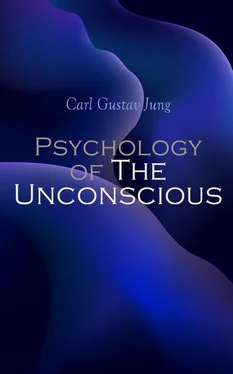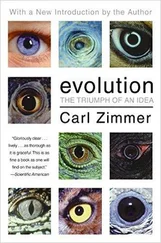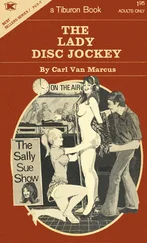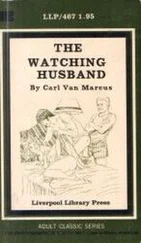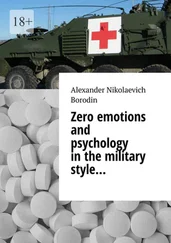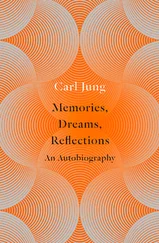It is exceedingly important for parents and teachers to recognize the requirements of nature, which, beginning with puberty, imperiously demand of the young individual a separation of himself from the parent stem and the development of an independent existence. In our complex modern civilization this demand of nature is difficult enough of achievement for the child who has the heartiest and most intelligent co-operation of his parents and environment—but for the one who has not only to contend with his own inner struggle for his freedom but has in addition the resistance of his parents who would hold him in his childhood at any cost, because they cannot endure the thought of his separation from them, the task becomes one of the greatest magnitude. It is during this period when the struggle between the childish inertia and nature’s urge becomes so keen, that there occur the striking manifestations of jealousy, criticism, irritability all usually directed against the parents, of defiance of parental authority, of runaways and various other psychic and nervous disorders known to all.
This struggle, which is the first great task of mankind and the one which requires the greatest effort, is that which is expressed by Jung as the self-sacrifice motive—the sacrifice of the childish feelings and demands, and of the irresponsibility of this period, and the assumption of the duties and tasks of an individual existence.
It is this great theme which Jung sees as the real motive lying hidden in the myths and religions of man from the beginning, as well as in the literature and artistic creations of both ancient and modern time, and which he works out with the greatest wealth of detail and painstaking effort in the book herewith presented.
This necessitates a recognition and revaluation of the enormous importance and influence of the ego and the sexual instinct upon the thought and reaction of man, and also predicates a displacement of the psychological point of gravity from the will and intellect to the realm of the emotions and feelings. The desired end is a synthesis of these two paths or the use of the intellect constructively in the service of the emotions in order to gain for the best interest of the individual some sort of co-operative reaction between the two.
No one dealing with analytic psychology can fail to be struck by the tremendous and unnecessary burdens which man has placed upon himself, and how greatly he has increased the difficulties of adaptation by his rigid intellectual views and moral formulas, and by his inability to admit to himself that he is actually just a human being imperfect, and containing within himself all manner of tendencies, good and bad, all striving for some satisfactory goal. Further, that the refusal to see himself in this light instead of as an ideal person in no way alters the actual condition, and that in fact, through the cheap pretense of being able only to consider himself as a very virtuous person, or as shocked and hurt when observing the “sins” of others, he actually is prevented from developing his own character and bringing his own capacities to their fullest expressions.
There is frequently expressed among people the idea of how fortunate it is that we cannot see each other’s thoughts, and how disturbing it would be if our real feelings could be read. But what is so shameful in these secrets of the soul? They are in reality our own egoistic desires all striving, longing, wishing for satisfaction, for happiness; those desires which instinctively crave their own gratification but which can only be really fulfilled by adapting them to the real world and to the social group.
Why is it that it is so painful for man to admit that the prime influence in all human endeavor is found in the ego itself, in its desires, wishes, needs and satisfactions, in short, in its need for self-expression and self-perpetuation, the evolutionary impetus in life?
The basis for the unpleasantness of this idea may perhaps be found in an inner resistance in nature itself which forces man to include others in his scheme, lest his own greedy desires should serve to destroy him. But even with this inner demand and all the ethical and moral teachings of centuries it is everywhere evident that man has only very imperfectly learned that it is to his own interest to consider his neighbor and that it is impossible for him to ignore the needs of the body social of which he is a part. Externally, the recognition of the strength of the ego impulse is objectionable because of the ideal conception that self-striving and so-called selfish seeking are unworthy, ignoble and incompatible with a desirable character and must be ignored at all cost.
The futility of this attitude is to be clearly seen in the failure after all these centuries to even approximate it, as evidenced in our human relations and institutions, and is quite as ineffectual in this realm as in that of sexuality where the effort to overcome this imperious domination has been attempted by lowering the instinct, and seeing in it something vile or unclean, something unspeakable and unholy. Instead of destroying the power of sexuality this struggle has only warped and distorted, injured and mutilated the expression; for not without destruction of the individual can these fundamental instincts be destroyed. Life itself has needs and imperiously demands expression through the forms created. All nature answers to this freely and simply except man. His failure to recognize himself as an instrument through which the life energy is coursing and the demands of which must be obeyed, is the cause of his misery. Despite his possession of intellect and self-consciousness, he cannot without disaster to himself refuse the tasks of life and the fulfilment of his own needs. Man’s great task is the adaptation of himself to reality and the recognition of himself as an instrument for the expression of life according to his individual possibilities.
It is in his privilege as a self-creator that his highest purpose is found.
The value of self-consciousness lies in the fact that man is enabled to reflect upon himself and learn to understand the true origin and significance of his actions and opinions, that he may adequately value the real level of his development and avoid being self-deceived and therefore inhibited from finding his biological adaptation. He need no longer be unconscious of the motives underlying his actions or hide himself behind a changed exterior, in other words, be merely a series of reactions to stimuli as the mechanists have it, but he may to a certain extent become a self-creating and self-determining being.
Indeed, there seems to be an impulse towards adaptation quite as Bergson sees it, and it would seem to be a task of the highest order to use intelligence to assist one’s self to work with this impulse.
Through the investigation of these different avenues leading into the hidden depths of the human being and through the revelation of the motives and influences at work there, although astonishing to the uninitiated, a very clear and definite conception of the actual human relationship—brotherhood—of all mankind is obtained. It is this recognition of these common factors basically inherent in humanity from the beginning and still active, which is at once both the most hopeful and the most feared and disliked part of psychoanalysis.
It is disliked by those individuals who have prided themselves upon their superiority and the distinction between their reactions and motives and those of ordinary mankind. In other words, they attempt to become personalities through elevating themselves and lowering others, and it is a distinct blow to discover that beneath these pretensions lie the very ordinary elements shared in common by all. On the other hand, to those who have been able to recognize their own weaknesses and have suffered in the privacy of their own souls, the knowledge that these things have not set them apart from others, but that they are the common property of all and that no one can point the finger of scorn at his fellow, is one of the greatest experiences of life and is productive of the greatest relief.
Читать дальше
